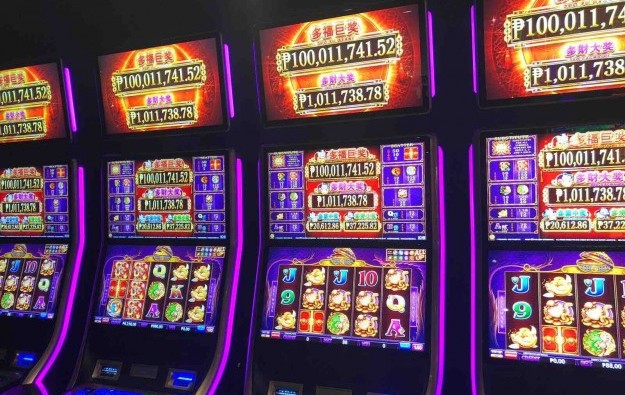Sci Games intl unit sales slip as 2019 loss narrows
Feb 19, 2020 Newsdesk Industry Talk, Latest News

Casino equipment maker and lottery services supplier Scientific Games Corp dipped to a net loss of US$43 million for the fourth quarter of 2019, compared to a profit of US$206.8 million in the prior-year period, on revenue that was almost flat. Quarterly group revenue was US$863 million, compared to US$886 million in the prior-year quarter.
But the group’s full-year net loss deceased by 63.1 percent to US$130 million, from US$352 million in 2018. Full-year group revenue was up slightly, at US$3.4 billion, compared to US$3.36 billion in 2018.
The firm said in a press statement on Tuesday that the fourth quarter included a US$40-million loss on a debt financing transaction related to a notes offering and a U$12 million loss on remeasurement of Euro-denominated debt.
The fourth-quarter 2018 numbers had benefitted from a “US$183-million reversal of a reserve related to resolving the Shuffle Tech legal matter and a US$14-million gain on remeasurement of Euro-denominated debt,” noted the group. It was referring to some litigation about intellectual property rights concerning some casino equipment made by the group.
The company said in a Wednesday release that the slight fall in quarterly revenue in 2019 was “largely driven by lower gaming revenue primarily due to fewer systems launches in Canada compared to last year and lower machine unit sales”.
The group noted that the 2018 full-year balance sheet had felt the effect of a “US$152 million charge related to resolving the Shuffle Tech legal matter”.
Group-wide, consolidated adjusted earnings before interest, taxation, depreciation and amortisation (EBITDA) for the three months to December 31, 2019 decreased 4.4 percent to US$328 million from US$343 million in the prior-year period, driven by lower contributions from the lottery and gaming segments. The result was “partially offset” by adjusted EBITDA in the digital segment, up 75.0 percent year-on-year, to US$21 million.
Scientific Games’ fourth-quarter shipments of new machines in the “international” segment – including Asia-Pacific markets – fell 23.9 percent to 3,266 units, from 4,290 units a year earlier.
The firm said in commentary: “International units decreased due to a large sale in the prior year of lower-priced units to a United Kingdom arcade operator, which was partially offset by strong sales in the Australian market.”
The average selling price of new units in the international segment during the quarter increased 7.2 percent year-on-year, to US$17,268 from US$16,113, said Scientific Games.
The number of replacement units shipped to international markets in the three months to December 31 was down 22.8 percent, at 3,228, from 4,184 in the prior-year quarter.
Full-year shipments of new products for international markets were down 6.9 percent, to 10,810, from 11,608 in 2018. The average selling price of such new units for full year was flat, at US$17,343.
Total 2019 shipments of replacement units for international markets slipped 3.8 percent, to 10,616, from 11,030 a year earlier.
The group’s net debt for the 12 months to December 31 was US$8.6 billion, consisting of US$8.9 billion in face value of debt outstanding, less US$313 million of cash and cash equivalents.
Michael Quartieri, chief financial officer of Scientific Games, said in commentary contained in the press release: “We reduced our net debt by over U$460 million in 2019, while successfully completing two refinancing transactions that will significantly reduce our cash interest costs going forward and extended our maturities.”
Barry Cottle, the group’s chief executive and president stated: “This past year, we made great strides in developing the best games, attracting industry leading talent, and improving our capital structure.”
He added: “I’m confident we have the right team in place to reach our goal to be the market leader across land-based gaming, lottery, sports and digital gaming driven by leading content and the platforms that enable play anywhere and any time.”
Related articles
-
 Entain names veteran casino tech exec...
Entain names veteran casino tech exec...Jul 22, 2024
-
 BMM group announces fresh C-level...
BMM group announces fresh C-level...Oct 05, 2023
More news
-
 Donaco EBITDA up y-o-y to above US$4mln...
Donaco EBITDA up y-o-y to above US$4mln...Jul 26, 2024
-
 HK listed Palasino upgrades Czech...
HK listed Palasino upgrades Czech...Jul 26, 2024
Latest News
Jul 26, 2024
Border-casino operator Donaco International Ltd has achieved a 164.17-percent year-on-year increase in its latest quarterly group earnings before interest, taxation, depreciation and amortisation...Sign up to our FREE Newsletter
 (Click here for more)
(Click here for more)
Pick of the Day
”We’ve got more traction outside of Macau at the moment. But Macau’s going be a bigger focus for us”
David Punter
Regional representative at Konami Australia
Most Popular
 Sheraton brand to exit Londoner Macao, to be Londoner Grand July 25, 2024
Sheraton brand to exit Londoner Macao, to be Londoner Grand July 25, 2024  Macau regulator probes unlicensed gaming agents July 24, 2024
Macau regulator probes unlicensed gaming agents July 24, 2024  Philippines gives 20k aliens in POGOs 60 days to leave July 25, 2024
Philippines gives 20k aliens in POGOs 60 days to leave July 25, 2024  Philippines-listed DigiPlus says not affected by POGO ban July 24, 2024
Philippines-listed DigiPlus says not affected by POGO ban July 24, 2024  Sands China 2Q EBITDA down q-o-q amid low hold, renovation July 25, 2024
Sands China 2Q EBITDA down q-o-q amid low hold, renovation July 25, 2024






